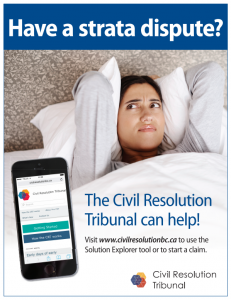2016 Bi-monthly Update Series: July-August
In our 2015 year-end update, we promised to provide bimonthly updates to new resources and services added to Clicklaw in those two months. Here is a sample from the changes in July and August:
Jan-Feb | Mar-Apr | May-Jun | Jul-Aug | Sep-Oct | Nov-Dec
![]() Legal Aid Community Outreach
Legal Aid Community Outreach
by Legal Services Society
The following community partners have important changes:
- Boston Bar First Nation – this location is temporarily closed
- Lytton First Nation – see the new address posted
- Vernon Women’s Transition House Society – see the new phone number posted
![]() Seniors’ Legal Clinic
Seniors’ Legal Clinic
by BC Centre for Elder Advocacy & Support (BC CEAS)
New locations added in Burnaby, New Westminster, North Vancouver, Surrey, and Vancouver’s West End. BC CEAS now offers legal services at those locations once a month. See the schedule posted.
 Elizabeth Fry Society of Greater Vancouver
Elizabeth Fry Society of Greater Vancouver
Since 1939, EFry has been providing support to incarcerated or at risk women, as well as their children. Services include assisting clients in understanding and navigating the court process at the Downtown Community Court and supporting girls in custody at the Burnaby Youth Custody Centre.
The Ombudsperson can conduct impartial and confidential investigations to determine if a public agency is being fair to the people it serves. Their services are provided free of charge.
- How Do I Make a Complaint?
Their website explains how to make a complaint and includes an online complaint form. Case summaries, reports, and guides are also available online. - BC Ombudsperson – Victoria office
See their phone numbers, office hours, and Victoria office location.
 Family Law in BC: Quick Reference Tool
Family Law in BC: Quick Reference Tool
by Legal Services Society
This set of postcards has been updated. They are available online or in print.
Options for Parents and Families: Collaborative Planning and Decision-Making in Child Welfare
by BC Ministry of Children and Family Development
This two-page booklet briefly describes different kinds of shared decision-making, and some of the ways that you can be involved in planning when a child welfare worker has concerns about your child’s safety.
 Permanent Transfer of Custody of a Child to Someone Familiar in BC
Permanent Transfer of Custody of a Child to Someone Familiar in BC
by BC Ministry of Children and Family Development
When a temporary placement for a child is not possible, the alternative could be transferring custody to the caregiver by adoption or a court order. This page briefly describes the conditions, guardian’s responsibilities, financial support, rights, access orders, and future legal matters.
 Clicklaw’s Find Someone to Talk With
Clicklaw’s Find Someone to Talk With
The list of toll-free phone numbers for law-related help in BC has been updated.
Most visited HelpMap services in July & August:



